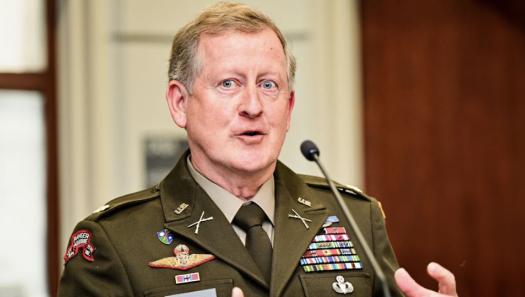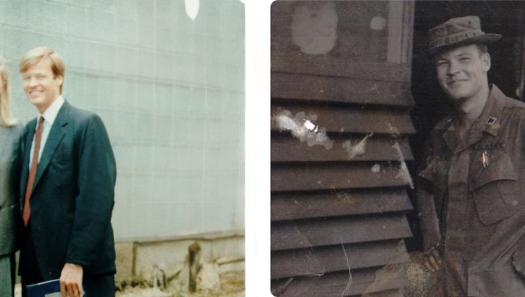Military & Veterans Life
Cover Story: From Combat Boots to Chef Toques
JODI HELMER, COURTESY OF AMTRAK ARRIVE MAGAZINE
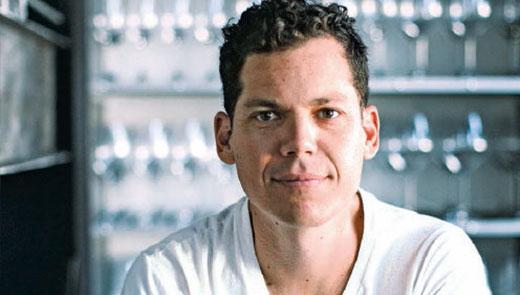
 culinary careers. |
 Institute of America: Latrice Latimore (Army National Guard), Damon Narkiewicz (Navy), Sean D. Dodds (Marines), Gavin Jones (Army), Lynnardo Holland (Air Force) and Vanessa Pappas (Air Force). |
After Ben Lubin completed his service with the U.S. Marines in 2009, he returned to his hometown of West Palm Beach, Fla., and opened a wine bar. It didn’t take long for Lubin to realize that opening a wine bar without a restaurant background was like going into combat without proper training. To ensure The Blind Monk was successful, the former artillery officer enrolled in a six-month culinary program at the International Culinary Center.
"The Marines prepared me for being a small-business owner, for managing and motivating staff and holding them to a high standard, [but] I didn’t have the knowledge, skills or experience to take the food to the next level," Lubin explains.
A growing number of military veterans are pursuing culinary careers. The Culinary Institute of America has seen veteran enrollment increase 400 percent since 2008.
The International Culinary Center, with locations in New York and Campbell, Calif., has also noticed an uptick in veteran enrollment.
"The food scene has exploded, and chefs are all over TV," says David Lopez, the director of admissions at the International Culinary Center in New York. "Chefs are the new rock stars. It’s a profession people aspire to be in."
 |
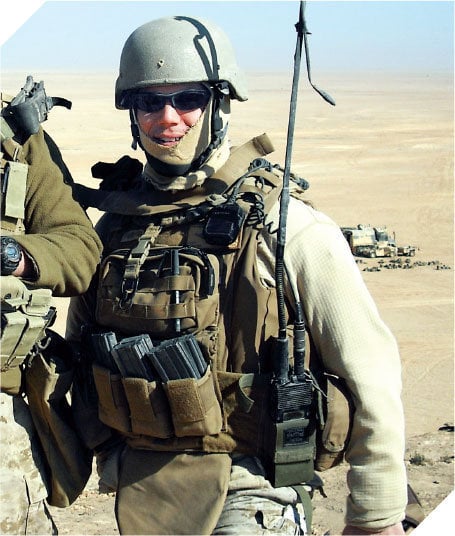 serving in Iraq in 2009. |
 |
 admission counselor, Eric Jenkins (Army); Thomson Johnson in his A la Carte Cookery class (National Guard); the Admissions Center at the Culinary Institute of America. |
ENLISTING IN CULINARY SCHOOL
The increasing number of military veterans enrolling in culinary school can also be attributed to a post-Sept. 11 GI Bill that covers up to $20,235 in educational expenses, coupled with the flood of troops who have returned from Iraq and Afghanistan, according to Eric Jenkins, the veterans admissions counselor at the Culinary Institute of America in Hyde Park, N.Y.
"The physical environment is a microcosm of what it’s like when you’re deployed: It’s hot, you’re working 12-hour shifts on your feet, and there is a lot of pressure."
But it’s not just a desire for retraining and funds to cover costs that is driving the soldiers-to-chefs trend: The similarities between military service and culinary careers help veterans feel more comfortable making that transition.
"In the military and in the kitchen, there is a chain of command and a need to follow instructions and complete the task," Jenkins says. "Veterans like the structure; it feels familiar to them."
Kitchens operate with military precision thanks to a hierarchy known as a brigade de cuisine. French chef Auguste Escoffier developed the system in the early 1900s. Like a private, a corporal and a sergeant in the military, an executive chef, a sous chef and the line cooks have responsibilities based on their rank.
Lubin deployed to Afghanistan in 2004 and Iraq in 2008; when he enrolled in the International Culinary Center in 2012, he was surprised at the overlap between his military and culinary training.
"Just like in the Marines, in a restaurant kitchen, the job has to get done. You need to have order, discipline, cleanliness and standards for quality," he explains. "The physical environment is a microcosm of what it’s like when you’re deployed: It’s hot, you’re working 12-hour shifts on your feet, and there is a lot of pressure. You’re not dealing with life and death [in the kitchen], so the stakes are much lower, but stress levels can be high."
ENGAGING RESOURCES
Recognizing that former military service members make great chefs, culinary schools have gone to great lengths to help veterans complete their training and secure jobs in the restaurant and hospitality industries.
At private schools like the International Culinary Center, where the tuition, which starts at $37,900 per year, exceeds the amount of funding available through the GI Bill, administrators introduced programs to reduce out-of-pocket costs. In 2012, the school announced a $5 million Veterans Scholarship Program that awards qualified veterans up to $7,500 toward tuition.
"Our veterans have put their lives on the line for our country," Lopez says. "If they want to get into a culinary career, we want to help them."
The Austin, Texas, and Boulder, Colo., campuses of the Auguste Escoffier School of Culinary Arts offer $2,000 scholarships for veterans as well as military on active duty and members of the National Guard and Reserves.
Finger Lakes Community College in Canandaigua, N.Y., introduced its Farmto-Fork Service Technician Program in 2013 to train unemployed veterans for restaurant careers. There is no cost for the three-week training program, thanks to a federal grant administered by the Rochester Institute of Technology.
At the Culinary Institute of America, the tuition is $19,000 per semester—a cost that far exceeds benefits offered through the GI Bill. The school introduced the Yellow Ribbon Program, which covers 100 percent of the tuition not covered through the GI Bill. To help veterans understand the demands of the program and their unique qualifications for a career in the culinary arts, the school also created a special position for an admissions counselor for veterans.
While some of the veterans applying for admission worked in mess halls or as culinary and food service specialists during their enlistments and deployments, many have limited experience with restaurant work.
Jenkins, a retired sergeant first class who worked in food service during his 24-year career with the U.S. Army, accepted the position after graduating from the culinary arts program at the Culinary Institute of America in 2013. He educates veterans about the demands of the program and helps them make the transition from the military to college.
"Operating a restaurant is almost like going back into the military without the deployments," he says. "I tell them, ‘If you made it past basic training and through your first enlistment, you can make it in culinary school.’"
MISSION ACCOMPLISHED
Thanks to an increased demand from veterans eager to pursue culinary careers—and the funding to make it happen—the soldiers-to-chefs trend includes significant success stories.
In a 2011 report, the National Restaurant Association noted that 250,000 veterans worked in the restaurant industry and had an ownership stake in almost 10 percent of restaurants nationwide. Several restaurant franchises, including Subway and Little Caesars, participate in the VetFran program offered through the International Franchise Association to provide financial incentives to veterans who want to operate franchises.
"Many of the vets who graduated [from International Culinary Center] have gone on to become executive chefs or open their own restaurants," says Lopez.
Kamal Grant served as a cook in the Navy from 1998 to 2002 and dreamed of becoming a chef. After completing the pastry program at the Culinary Institute of America, he opened Sublime Doughnuts in Atlanta.
DEPLOYING NEW SKILLS
 |
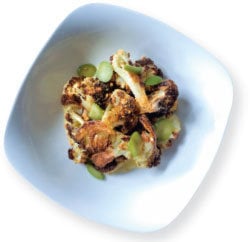 |
Grant credits his naval service for giving him the discipline and positive attitude he needed to run a successful business—one of the main reasons he’s hired other veterans to work at Sublime Doughnuts. He cites the understating of chain of command, professionalism and the right attitude as attributes vets possess.
"There is a bond and camaraderie, too," he says, "to working with people who have served in the military and been through some of the same things."
The military cook-turned-pastry chef also credits the military, in particular the overseas assignments he was on, as a key contributor to his desire to pursue a culinary career. One of the most popular items on the menu is the Sublime Ice Cream Burger, which was inspired by a sweet treat Grant tried in Singapore: It’s a scoop of ice cream sandwiched between two doughnuts.
"We stopped in different ports and tried different foods and flavors," he says. "It helped refine my palate."
For Lubin, culinary school was the key to improving his palate (and his cooking skills). After graduating in 2012, Lubin returned to West Palm Beach and made major changes at The Blind Monk. In addition to renovating the kitchen, he revamped the menu and even returned to the school for the 10-week sommelier program to learn more about wine.
"Being in the program and living in New York exposed me to a whole new world of food and beverage experiences," he says. "It changed how I run The Blind Monk."
